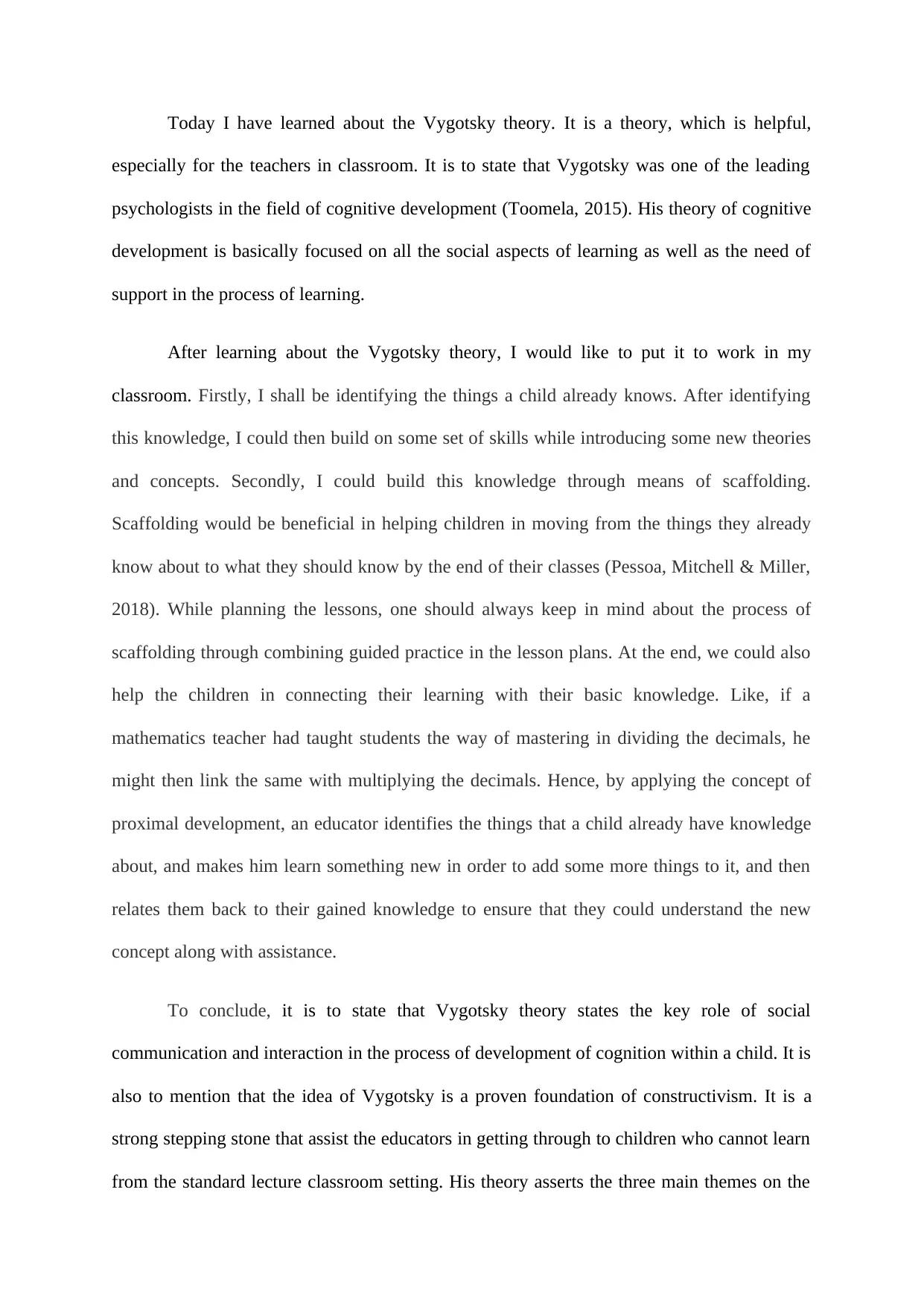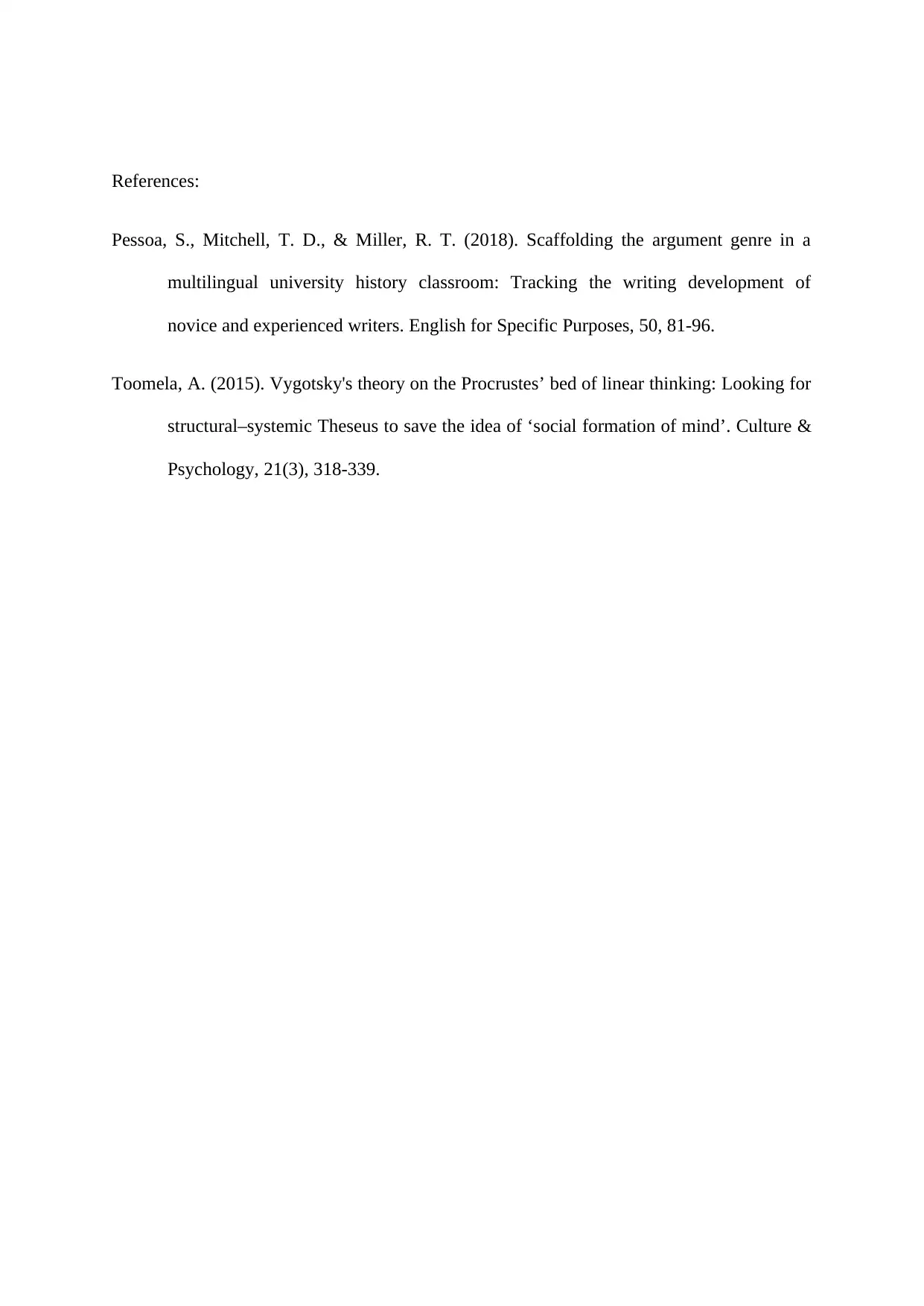Implementation of Vygotsky's Theory: A Reflective Analysis Essay
VerifiedAdded on 2023/06/09
|3
|557
|55
Essay
AI Summary
This essay reflects on the application of Vygotsky's theory of cognitive development in a classroom setting. It highlights Vygotsky's emphasis on the social aspects of learning and the importance of support through scaffolding. The author discusses identifying a child's existing knowledge and building upon it by introducing new concepts and skills. Scaffolding is presented as a method to bridge the gap between what a child knows and what they should know, integrating guided practice into lesson plans. The essay also emphasizes connecting new learning to prior knowledge, using the concept of the zone of proximal development to ensure understanding. The author concludes that Vygotsky's theory, with its focus on social communication and interaction, serves as a foundation for constructivism and assists educators in reaching students who struggle with traditional teaching methods, making learning more engaging and tailored to individual needs.
1 out of 3










![[object Object]](/_next/static/media/star-bottom.7253800d.svg)